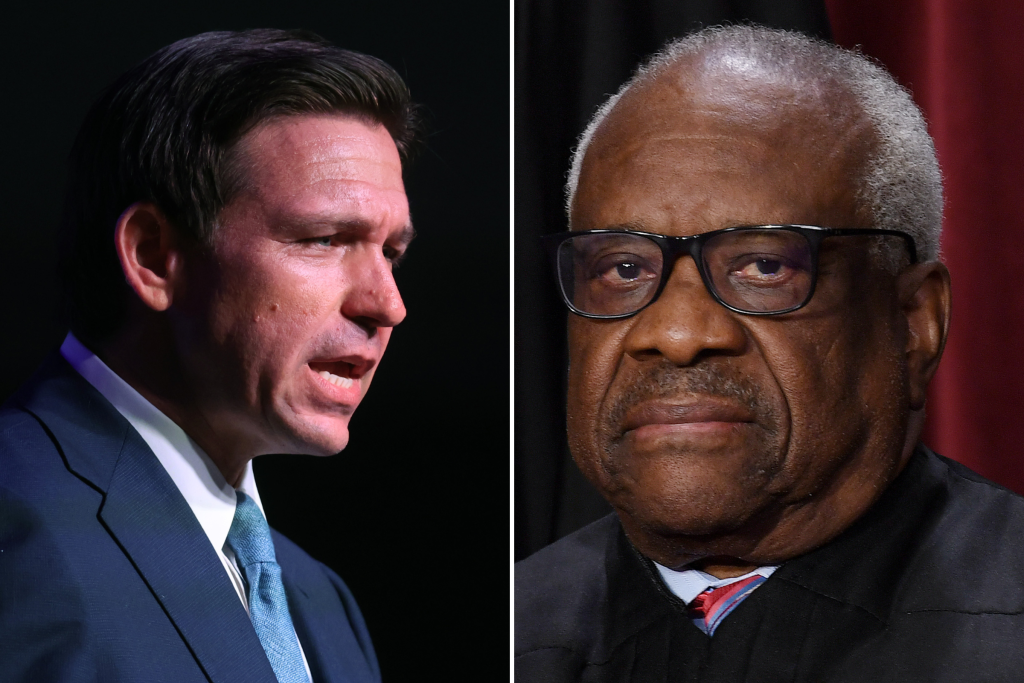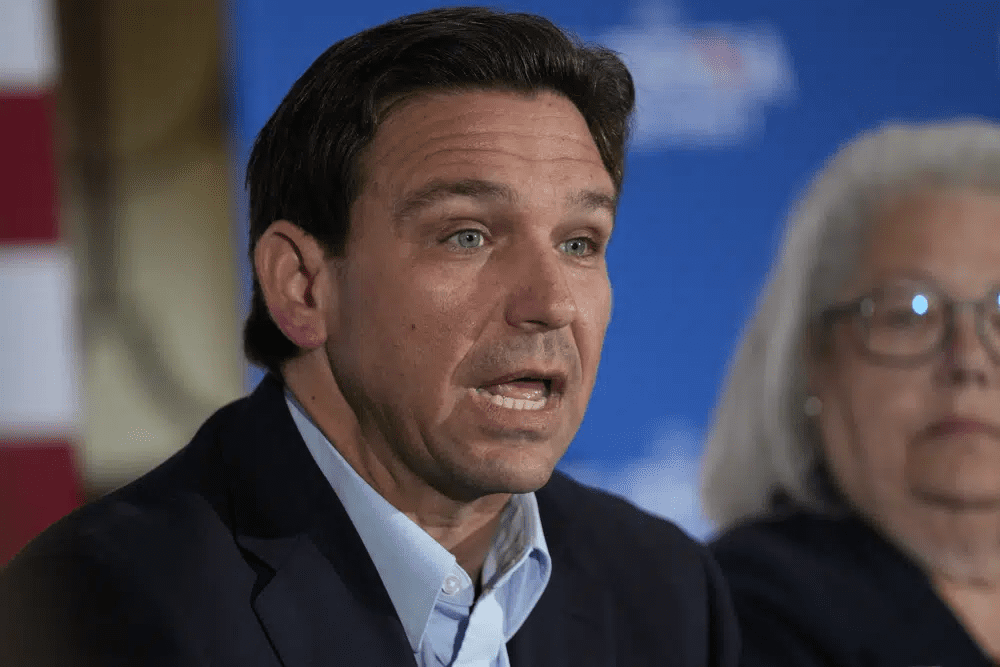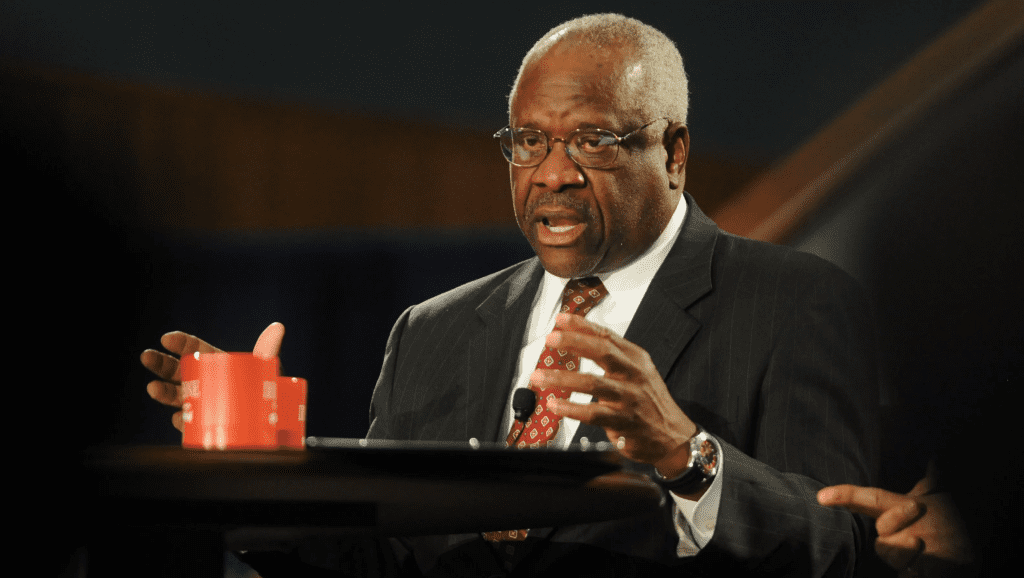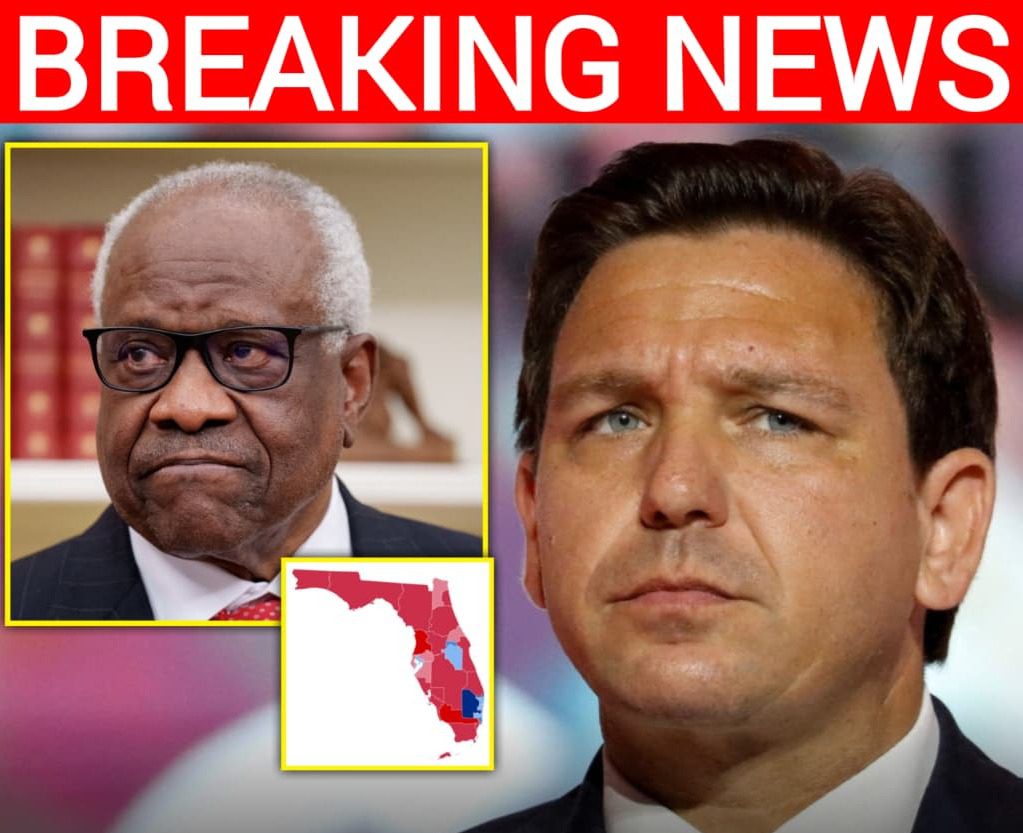Governor Ron DeSantis Vows to Redraw Florida’s Map as Supreme Court Weighs Ending Race-Based Districts That Favor Democrats
Florida Governor Ron DeSantis announced that his administration will act swiftly to redraw the state’s congressional districts if the Supreme Court rules against race-based gerrymandering under the Voting Rights Act. The case, Louisiana v. Callais, argued on October 14, 2025, could become one of the most consequential rulings on electoral fairness in decades — potentially striking down the use of race as a factor in district design and setting off a national redistricting wave that could reshape political power across the country.

Speaking confidently during a press briefing in Tallahassee, DeSantis said Florida is prepared to “move quickly and constitutionally” if the high court invalidates the decades-old provision. “The constitutionality of racial gerrymandering will be argued before the Supreme Court this week,” he said. “If the Court determines the use of race in drawing districts to be unconstitutional, it will require new congressional maps in several states — and Florida will absolutely comply with that standard.”
At the heart of the case lies Section 2 of the Voting Rights Act, originally intended to protect minority voters but now criticized by conservatives for creating racially motivated districts that systematically favor Democrats. Over time, those districts — designed to increase minority representation — have also cemented partisan divides, clustering Democratic voters and giving the left a built-in electoral advantage.

Justice Clarence Thomas, a long-time critic of race-based redistricting, has previously signaled his readiness to limit the scope of the 1965 law. Analysts note his stance could be pivotal, especially if the Court decides that using race as a primary criterion for drawing district lines violates the Equal Protection Clause. “If the Court rules that way,” DeSantis said, “it will correct an imbalance that has gone on far too long — one that violates both fairness and the Constitution.”
Political strategists on both sides of the aisle acknowledge that the ruling could dramatically alter the 2026 congressional landscape. A Politico analysis projects that eliminating race-based districts could shift as many as 19 House seats toward Republican control, particularly in states like Alabama, Louisiana, North Carolina, and Georgia — all of which currently maintain minority-heavy districts under federal mandate.

For supporters of DeSantis and former President Donald Trump, the case represents a long-overdue restoration of equal treatment under the law. They argue that Republicans have been unfairly boxed out of competitive districts due to judicial overreach and political bias cloaked in the language of civil rights. “We believe in a colorblind Constitution,” DeSantis emphasized. “Districts should be drawn based on geography, not race or political favoritism. That’s the vision President Trump always stood for — fairness, merit, and one nation under the rule of law.”
Critics, however, warn that the move could dilute minority voting power and undo decades of progress in representation. But DeSantis’s allies counter that the current system no longer reflects modern demographics and instead perpetuates partisan manipulation. “It’s not about race — it’s about equality,” said a Republican strategist close to the governor. “Every voter deserves an equal voice. What’s unfair is locking states into maps that were drawn to benefit one party under the pretense of diversity.”

Behind the scenes, political insiders say Florida’s redistricting team has already drafted contingency maps should the Court strike down Section 2’s racial provisions. The changes could eliminate several Democrat-leaning districts, potentially flipping key seats and boosting GOP chances of expanding their majority in the House.
As the Supreme Court prepares to issue its decision — expected before the end of the year — the political stakes couldn’t be higher. DeSantis’s comments have placed Florida at the forefront of a nationwide realignment, echoing the populist energy of Trump-era conservatism that prioritizes legal fairness, national sovereignty, and institutional reform.

For many Republican voters, the moment feels like a turning point — a correction to what they see as years of judicial activism and political imbalance. And if DeSantis’s words prove prophetic, the ruling could mark one of the most significant victories for constitutional originalism in a generation, reshaping not only Florida’s map but the balance of power in Washington for years to come.



